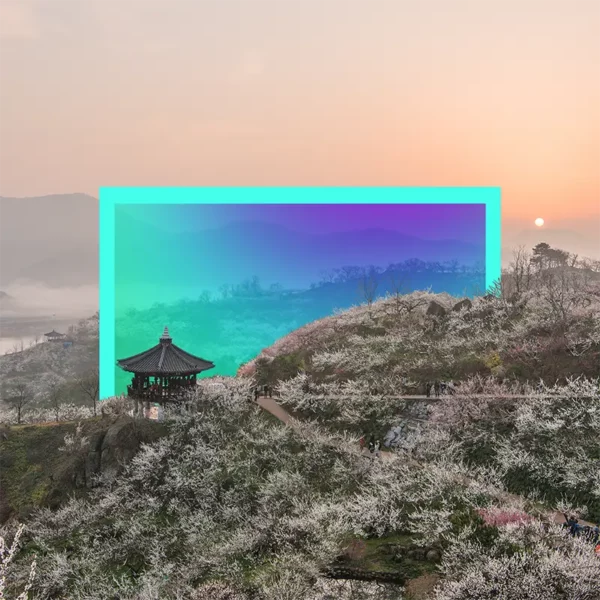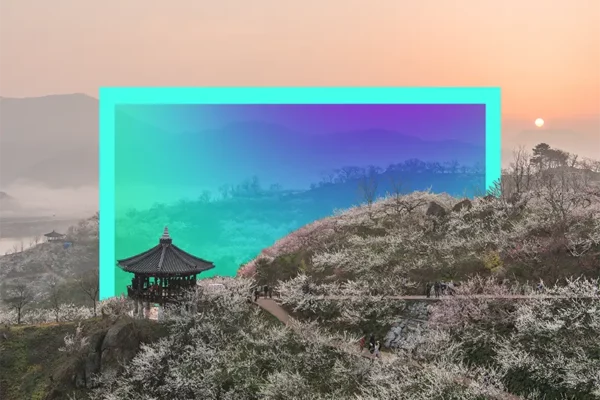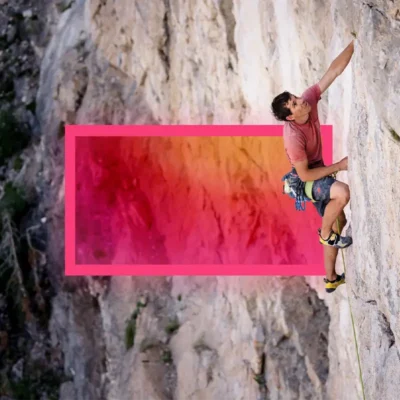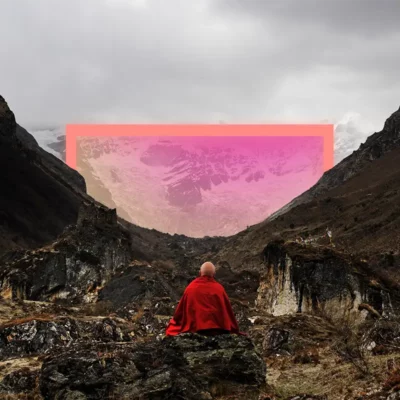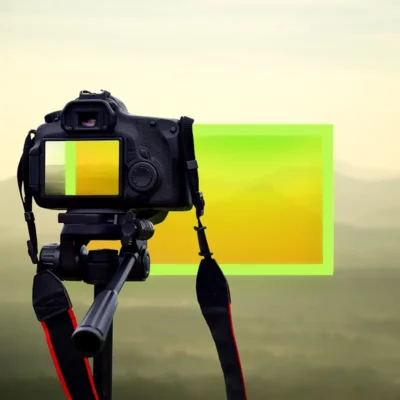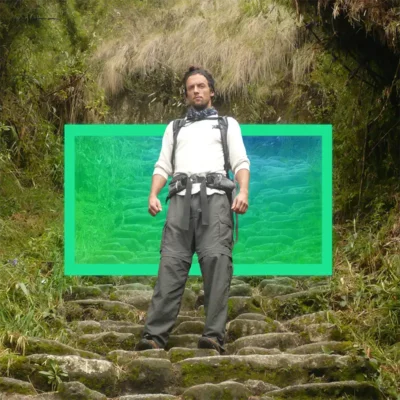ROHAN GUNATILLAKE: It’s 2005, and I’m suffering the great hardship of taking the train down from Paris to Bordeaux. Of course it’s not a hardship at all. As a Brit, the French countryside is a deeply romantic thing. And for good reason. As we roll through the Loire, Orléans, Tours, Poitiers, the countryside is as endlessly enjoyable as those names are to say. Oh, and the trains. As a Brit, partaking in functional and delightfully fast train travel is a luxury indeed.
Bordeaux isn’t where I’m going though. I change trains there and take a stopping service to Bergerac and get off at Sainte-Foy-la-Grande. It’s a hot dry day, and after a pleasant 40 or so minutes sitting on the curb outside the quiet station, a minibus turns up. A young man gets out in lightweight pale gray robes.
“Anyone here for Plum Village?”
“Yeah that’s me.”
He founded Plum Village in 1982, and it was the base where Thich Nhat Hanh, known in the community as Thay, lived since his exile. That was until 2018, when he finally returned to Vietnam to live at the main temple for his Zen lineage, and that is where he died on January 22nd this year, aged 95. And this special episode is dedicated to him. He inspired generations of people all around the world to explore mindfulness and meditation. This whole thing just wouldn’t be here with you in the same way if it wasn’t for him and his influence.
Plum Village is made up of four hamlets, and I’m staying in Upper Hamlet. Each day has a strong meditation schedule, but it’s the spaces in between where things come especially alive for me. Meals, spending time in group discussion, study periods, chores, and once a week a talk from Thay himself. I learn how to make tofu, drink warm fresh soya milk for breakfast (delicious), and make friends. I gain a confidence in my own practice, though still so young in my meditation life and understanding. But the thing that strikes me most is how the monastics who live here year-round are. Nuns and monks expressing what it is to be loving and wise and here and human in everything they do. Just observing is educating. Watching them is my most productive practice.
It’s about a 20-minute walk and everyone is excited. A talk from Thich Nhat Hanh is a treat when read on the page. In person is something else. He’s in a large open tent, and I’m sitting outside in an area for guests. It’s a talk about love.
For all the wisdom he talks, the most abiding memory for me is something else. Thay is speaking in French, and so there is a translator near us sharing the talk in English. She’s a French-Vietnamese nun, maybe in her forties, it’s hard to say to be honest. She is translating Thay’s words one sentence at a time.
But there’s an unexpected pause. We all hear Thay say something, but the translation has not yet come. I look up and see that the nun is in tears, unable to speak.
“Too beautiful,” she’s saying to herself. “It’s too beautiful.”
So touched by Thay’s words, she cannot share them yet, her whole body resonating with emotion. A woman who has spent most of her adult life in this community, but still Thay’s teaching touches her like this. After about 30 seconds she starts translating again. It’s one of the greatest lessons of my life.
Thich Nhat Hanh is known for so much. A prolific and gently fierce life, which rightly led to him being called the father of the mindfulness movement. My own practice exists because of his influence and his emphasis on socially-engaged practice and integrating mindfulness into daily life, an idea upon which I’ve built my meditation approach.
There is a universe of teaching to discover through Thich Nhat Hanh’s work, but the idea I want to start today’s meditation with is that of looking deeply. With our awareness gentle, a drop of dew on the tip of a blade of grass, let’s breathe and know that we are breathing.
Body here. Mind here. Body-mind here. Love here. That which is not love, here too.
Our breath, our body. Looking deeply. Knowing it as intimately as we can while still being open and relaxed. And while doing that, recognizing our breath is the breath of trees, is the breath used by lovers to declare their love for the first time. Looking deeply, we see our breath as the result of a chain of events, all making this moment, this body-mind, this space-time possible. The cosmos is here. When we look deeply.
The Miracle of Mindfulness is probably my favorite of Thich Nhat Hanh’s books. Breathe, and know that you are breathing. The most fundamental of meditation instructions. Let’s do that. Let’s breathe and know that you are breathing.
Breathe. Breathe. Breathe. You are alive.
After that trip to the South of France, like a true fanboy I bought a Thich Nhat Hanh print of his wonderful calligraphy. This is it. Three words in a circle, the circle the Zen symbol known as an enso.
I see it several times a day.
This is it. This is it? This is it. The perfect teaching.
Ok. You may have heard the name Dorothy Abrahams on our show credits. Hey Dorothy.
DOROTHY ABRAHAMS: Hey Rohan.
GUNATILLAKE: How are you doing? Remind everyone what you do on the show?
ABRAHAMS: I am a producer on the show.
GUNATILLAKE: So that basically means you do everything to make it happen.
ABRAHAMS: I don’t know about everything, it’s definitely a team effort, but I do have the great pleasure of working with you each week. It’s one of the highlights of my job.
GUNATILLAKE: Sure, sure, I’m sorry about that. So when I told you that I wanted to do a special episode to mark Thich Nhat Hanh, you shared your own memory of him.
ABRAHAMS: I did.
GUNATILLAKE: Yea, could you say a little bit about it, so this was maybe quite a few years ago?
ABRAHAMS: It feels like it was yesterday in one sense, but yes, it’s a number of years ago now. I had the very good fortune of being at the Omega Institute for really one of the best years of my life.
GUNATILLAKE: And that’s a … that’s a sort of teaching and retreat center in northern New York right?
ABRAHAMS: That’s right. It’s in a place called Rhinebeck, New York. I really cannot believe my good fortune that summer, so many doors were opened to me that have greatly influenced my development, and one of those was the fact that Thich Nhat Hanh came to Omega for a week of practice.
GUNATILLAKE: And what do you remember about that time?
ABRAHAMS: I remember waking up and walking down a hill towards the office where I worked, and this, it was almost like a flock of birds, a whole group of people walking in the early morning light, and … it’s unreal. There was this magical mist around them, and they were all led by these monks in brown, brown robes, monks and nuns. And everyone was walking at this pace that seemed out of space and time, you know, something very other-than to me, because I had never seen walking meditation before. And it just took my breath away, as I was going about my day. So that was definitely one strong memory, an impression I will never forget, that I’m grateful for from that week.
GUNATILLAKE: And I remember you saying something about, well, you know, a real, such a strong emphasis of his teaching is around, you know, being directly present with everything in your life. And I remember you saying that everything down to the food, or how your attention or your awareness was during that week. Can you say a bit more about that?
ABRAHAMS: Yes. Everyone on the staff at Omega was invited to participate in silent meals, along with those who had come to study with Thich Nhat Hanh that week. And that was the first time I had ever committed to being absolutely silent during all meals. And periodically a bell was rung. And when that bell was rung, everyone was asked to remain still. And I remember eating mushroom soup specifically, and feeling like that moment in Ratatouille, I can think about it now, where, you know, there’s just this zoom in to a whole other experience of what eating could be. And, tasting every bit of the ingredients, I was just blown away. Again, never having thought about meditation while eating before, that eating could be a mindfulness practice in and of itself. And I don’t think soup ever tasted so good. It was a really, really wonderful experience.
GUNATILLAKE: Thank you, Dorothy, that was really lovely. And it was really fun to have you as a guest on the show briefly. And thanks again for everything you do to make the show happen.
ABRAHAMS: Oh my goodness, it’s my pleasure. Thank you for having me, Rohan.
GUNATILLAKE: And that you Thay. This one’s for you.
They’re all for you really. And they’re all for you too, so thank you.
And go well.
